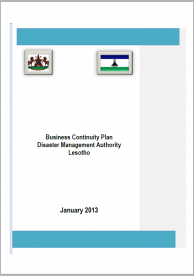
The following Business Continuity Plan (BCP) lists the tasks that should be carried out as soon as an incident, or potential incident, is discovered and/or an emergency that affects the wellbeing of the people of Lesotho.
The following is a list of all conten labeled as "Water"

The following Business Continuity Plan (BCP) lists the tasks that should be carried out as soon as an incident, or potential incident, is discovered and/or an emergency that affects the wellbeing of the people of Lesotho.
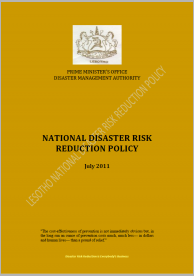
The purpose of national disaster risk reduction policy is to provide a framework for effective planning and implementation of disaster risk reduction in Lesotho. More than 90 percent of disasters in Lesotho are related to climatic changes.

This plan was established as a response to the impacts predicted due to the El Niño phenomenon (2015-2016). The overall objective of the National Response plan is to mount a timely, consistent, effective and coordinated response to save lives, property and livelihoods for the affected communities. The specific goals are to:

The National Climate Change Management Policy is a key instrument for managing climate change in the country of Malawi.
The goal is to create an enabling policy and legal framework for a pragmatic, coordinated and harmonized approach to climate change management.
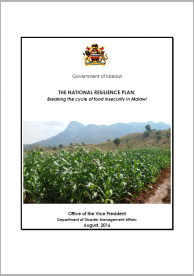
The broad objective of the plan is to help make Malawi resilient to disasters and break the cycle of food insecurity.
To achieve this, the following specific objectives will be pursued:

The need for a Disaster Risk Management Policy for Malawi has been felt through experiences and lessons learnt by government, civil society organisations and development partners in the coordination of disaster risk management activities in the country.
This policy will serve the following purposes:
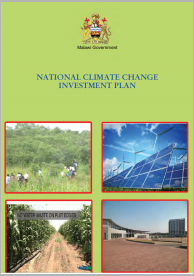
The primary objective of the National Climate Change Investment Plan (NCCIP) is to increase climate change investments in Malawi.

The programmme is a result of issues and concerns expresses by Malawians on food security, water and sanitation renewable energy, forest product and services, environment and indigenous knowledge.
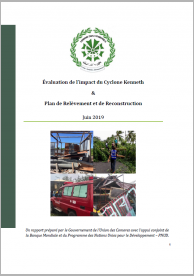
On April 24, 2019, the Union of Comoros was hit hard by Cyclone Kenneth, which affected 345,131 people, including more than 185,000, very severely.

The aim of this report was to highlight existing capacities, challenges and gaps, as well as make recommendations for strengthening national and local capacities regarding DRR (including climate change risks) through key sectors.